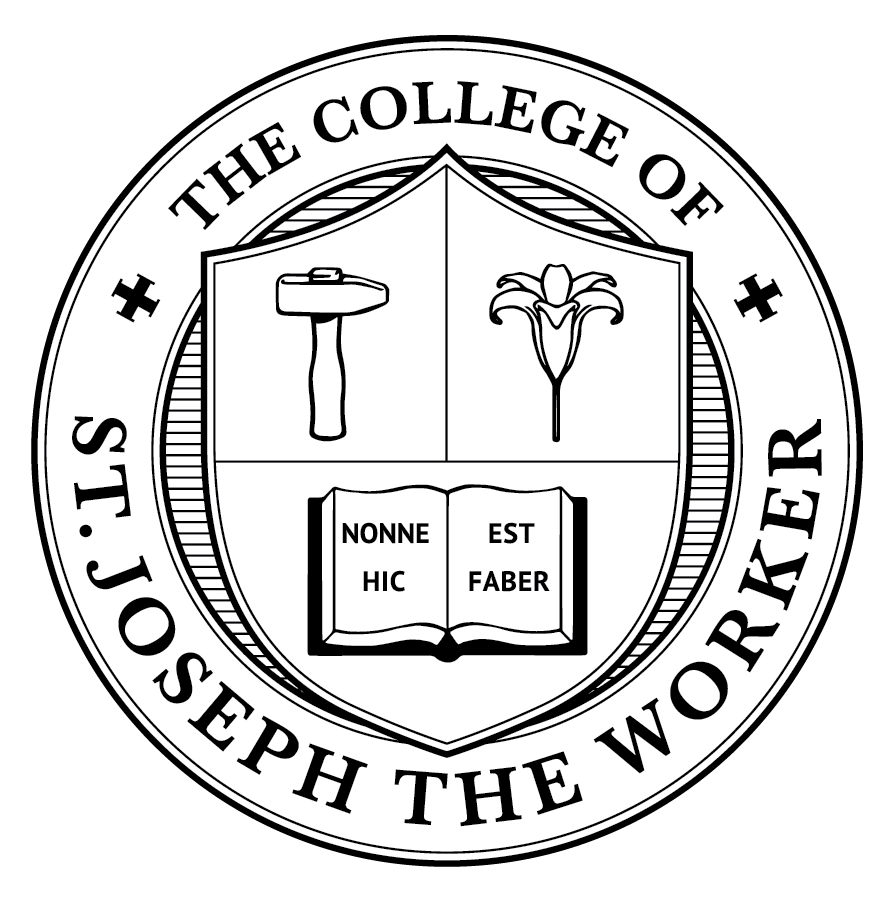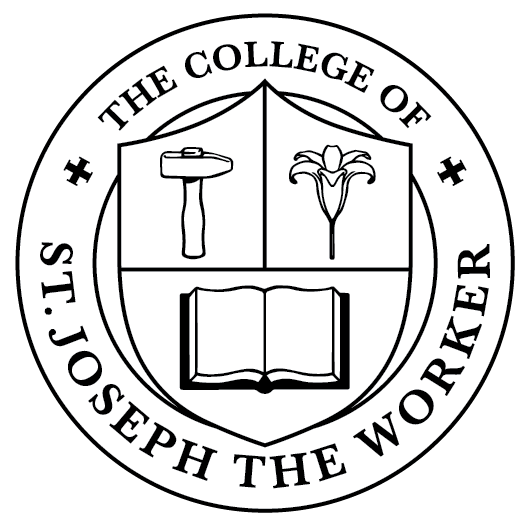
Mission
The College of St. Joseph the Worker forms students into effective and committed members of their communities by teaching them the Catholic intellectual tradition while training them in skilled and dignified labor. We teach our students to think, but also to pray, to love, and to build.
Vision
The Life of Christ
Students of the College of St. Joseph the Worker will graduate with a BA in Catholic Studies as well as a solid foundation in the skilled trades. Our goal is to produce faithful Christians who are virtuous citizens, intellectually formed, and capable of building up the Church in their communities.
In ancient pagan societies, as again today, people often thought of manual labor as undignified. The Roman consul and lawyer Cicero once remarked that all workers “are engaged in vulgar business; for a workshop can have nothing respectable about it.” Aristotle, speaking a few hundred years prior, stated, “the citizens must not lead the life of craftsmen … for such a life is ignoble, and inimical to virtue.” Such convictions were the basis for the slave societies of antiquity. Christianity casts aside such ideas. In Laborem exercens, Pope Saint John Paul II wrote:
Christianity brought about a fundamental change of ideas in this field, taking the whole content of the gospel message as its point of departure, especially the fact that the one who, while being God, became like us in all things, devoted most of the years of his life on earth to manual work at the carpenter’s bench. (no. 26)
The Word became flesh and picked up a hammer. To imitate Christ, we must do the same: integrate the intellectual and the spiritual life with the physical work of man. The union of the head, the heart, and the hands is fundamental to the gospel, as it is the very same integrity that the Son assumed at his incarnation. Christ, who reveals humanity to itself, shows that the humble worker is not merely respectable but is the very archetype of humanity. The world grumbles at this disruptive revelation: “Where did this man get this wisdom and these mighty works? Is not this the carpenter?” (Mark 6:3).
The American Dream and Catholic Freedom
Thomas Jefferson conceived of a republic built on the yeoman farmer—the independent, working, property owner, who could govern the republic precisely because he could govern himself. This role has transferred in the modern economy to the small business owner—the person who both works and owns. The ideal has been damaged over time, but it is not lost: Americans still value work and still hope for ownership. Independent workers are not subjugated to large systems that they cannot understand or control. Independent workers tend to have a healthy common sense and the ability to cut through rhetoric and dissembling. Independent workers tend to have a local focus, with real concern for the communities that their work serves. As Jefferson saw it: “Cultivators of the earth are the most valuable citizens. They are the most vigorous, the most independent, the most virtuous, and they are tied to their country, and wedded to its liberty and interests, by the most lasting bonds.” For these reasons, James Madison said that “the freeholders of the Country would be the safest depositories of Republican liberty.” We are no longer a nation of farmers, but we can still be a nation of virtuous and independent workers.
This American ideal opposes a world in which God’s children can dream of no better than to take their place within the vast mechanisms of state and market—mechanisms they can serve, but never own. Such instrumentalization and anonymization of human work is not only an affront to American principles but also to Catholic Tradition, which praises the independent polity composed of people who have real ownership, skill, and virtue. Pope St. Paul VI praised the Catholic missions for bringing not only the faith but also the skills that allowed true freedom from foreign commerce, which threatened to overrun families and cultures (Populorum progressio 12). Pope St. John Paul II brilliantly reiterated the Catholic teaching: in order to exercise our rationality for the common good we must be free to work, not as instruments in furtherance of the ends of others, but exactly for ourselves as members of larger communities (Laborum exercens 71). Real work and real ownership are necessary conditions for real freedom. Here we find a providential convergence of the American and the Catholic.
It is at times an uneasy convergence. Pope Leo XIII reiterated the longstanding position of the Church that the Christian is called not only to build and serve the social order but more importantly to sanctify it, to lead all things to repose under the reign of Christ (Longinqua 6). The American separation of religion from public life, the pope argued, is an error (Longinqua 13, 14). This error must be overcome. The College of St. Joseph the Worker operates under the conviction that the ordered liberty of virtuous men is possible only through the truth and grace of Christianity. As our history has made clear, a strong, free republic will be a republic in pursuit of sanctity or it simply will not be.
The college aims at a revived citizen class of educated workers who can hold the powerful forces of our society to account and who can work to solve our actual societal problems on the ground, in our towns. In other words, the college strives to raise up people who are capable of living out the principle of subsidiarity.
Spiritual and Intellectual Foundations
The spread of the Gospel is the ultimate goal of every Christian institution. Because evangelization demands engagement with the world, the college brings Christ to the world by understanding the world from the inside and living in it, but never of it. This is why the college, as a prerequisite to all its other activities, provides an environment for the spiritual development of its students and faculty.
The Catholic university, as Ex corde ecclesiae puts it, “is distinguished by its free search for the whole truth about nature, man, and God.” Through a curriculum devoted to studying the traditional dimensions of the lay vocation—politics, family, and work— the student learns to think as he learns to conceive and execute his work in a manner that mirrors God. In such a way contemplation and action find a unity within the virtuous human person.
The importance of work has become obscure in our time. Work has become merely toilsome, as if Adam’s fall is the order of the day—as if the work of our redemption never occurred. The mission of the College of St. Joseph the Worker is to place the student back in his rightful place: to place mankind again in a position “to subdue and have dominion” over the world precisely because he has dominion over himself. Virtue is strength. And the foundations of society are built by strong workers. The mission of St. Joseph the Worker is to serve the Church and to serve our country through providing our society with such workers.





